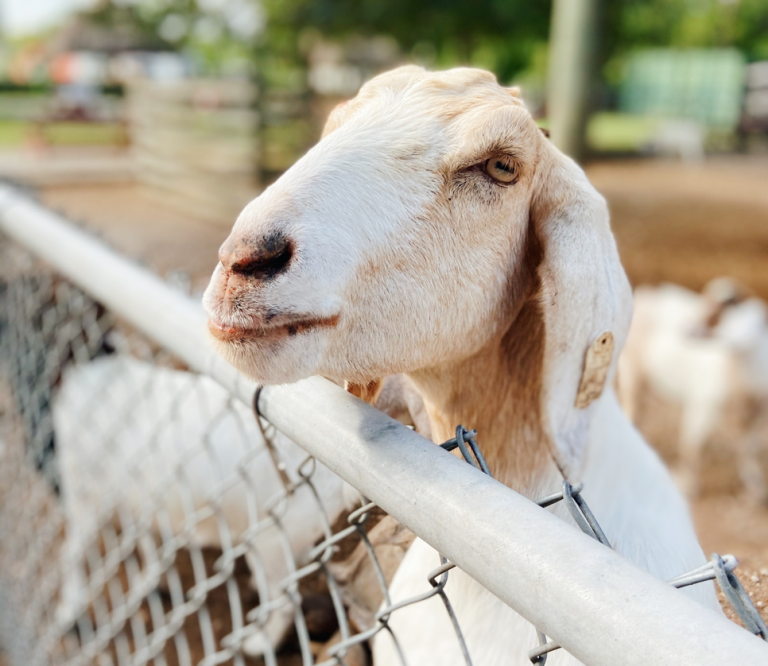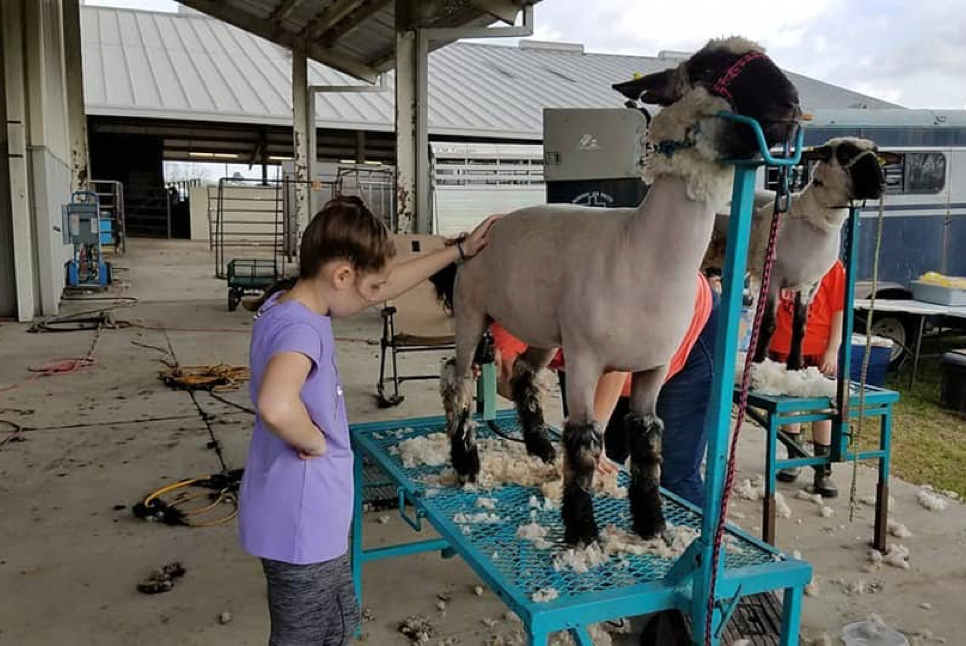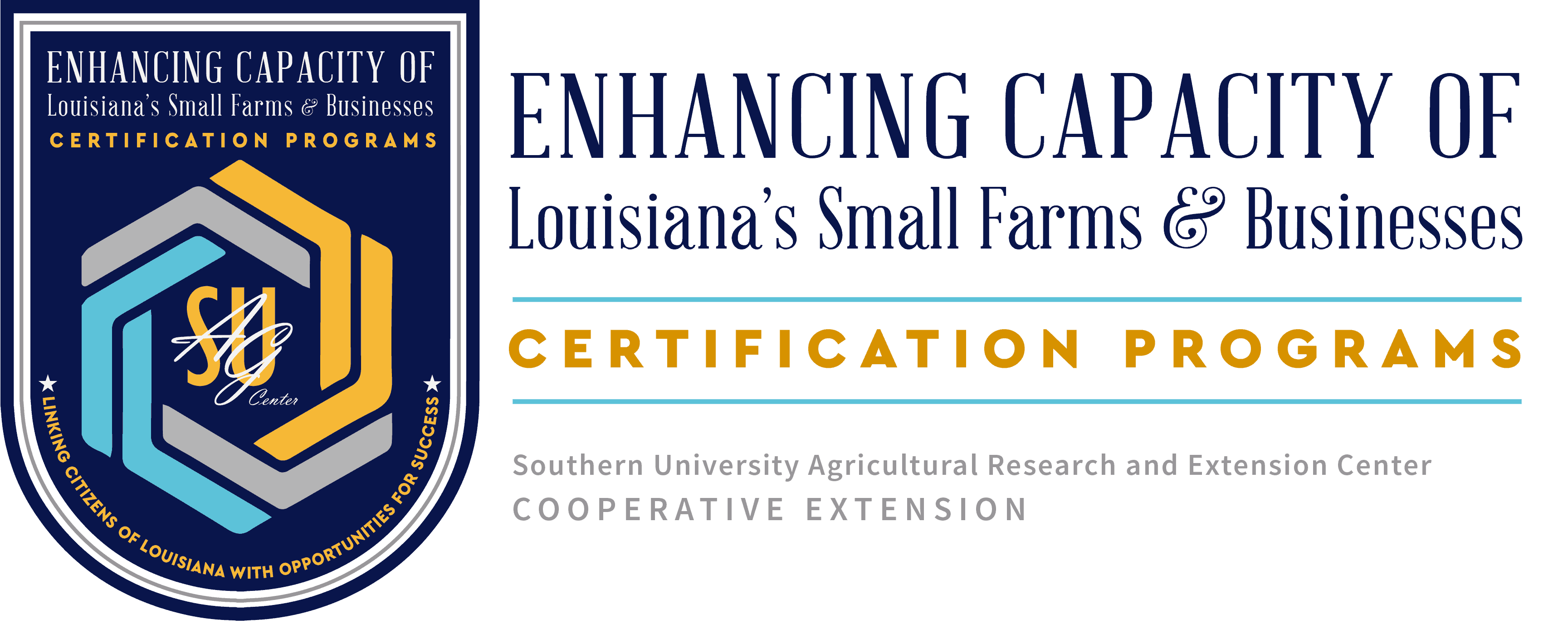Master Small Ruminant Certification
The Master Small Ruminant Producer Certification Program is a comprehensive course for beginning and advanced goat and sheep producers. This training program is to provide educational training opportunities in small ruminant production, management, and marketing for Low to Moderate Income(LMI) and/or Urgent Need producers to assist in building a viable and sustainable goat and sheep industry in the state of Louisiana.

Program Overview
The Master Small Ruminant Producer Certification Program is a comprehensive course for beginning and advanced goat and sheep producers. This training program provides educational training opportunities in small ruminant production, management and marketing for Low to Moderate Income(LMI) and/or Urgent Need producers to assist in building a viable and sustainable goat and sheep industry in the state of Louisiana. Farmers must pass a farm inspection to become certified as a Master Small Ruminant Producer. A non-certification track is also available for producers.
What Are Ruminants?
Ruminants are mammals that are able to get nutrients from plant-based food by dissolving it in a specialized stomach prior to digestion. The process typically requires the fermented ingesta (known as cud) to be regurgitated and chewed again. The process of rechewing the cud to further break down plant matter and stimulate digestion is called rumination. The word “ruminant” comes from the Latin ruminare, which means “to chew over again”.
Ruminants are characterized by a stomach divided into four parts called the rumen, reticulum, omasum, and abomasum. There are about 150 different domestic and wild ruminant species.
Levels of Certification
The producer will be awarded a certificate of completion after successfully completing five hours of training for each of the following topics on small ruminants: Nutrition; Reproduction; Management and Production; Housing and Facilities; Pasture-based Production and Breeds and Breeding.
The prerequisite for level two is to complete level one and additionally complete 10 hours of each of the following topics on small ruminants: Record Keeping; Animal Health and Diseases; Biosecurity; Genetics and Breeding; and Parasite Detection. A producer should also pass a preliminary complete farm inspection that includes availability of facilities.
The prerequisite for level three is to complete levels one and two of the program and pass final farm evaluation during a second farm inspection. At this level, a producer is expected to receive five hours of training on each of the following topics: Health Benefit of Meat Goats; Value Added Meat Goat Products; Marketing Small Ruminants; Disaster Preparedness; and Determination of Forage Quality.
In addition to these three levels of certification, a producer must complete 10 hours of Goat Husbandry and Hands on Training.
After successful completion of all levels, a sign will be displayed on the property identifying the producer as a Master Small Ruminant Producer. A certification of completion will be given every year with a final graduation ceremony at the end of the third year.


Program Topics
- Goat and Sheep Industry
- Biosecurity, Food Safety, and Quality Assurance
- Selecting and Evaluating Breeding Stock
- Reproductive Management of Small Ruminants
- Small Ruminant Nutrition
- Pasture Management
- Identifying Poisonous Plants
- Natural and Organic De-worming Alternatives
- Diseases in Small Ruminants
- State and Federal Regulations
- Record Keeping
- Production and Marketing
- Risk Management
- Establishing a Small Ruminant Facility
- Hoof Trimming
- Administering Medications
- Body Condition Scoring
- FAMACHA
"Our goal is to cultivate skills in urban farming techniques in which they learn to use sustainable and modern practices." – Felton DeRouen, II
GROW YOUR SKILLSET
Refresh your current skills, deepen your understanding or branch out and discovernew learning through our certification programs.

